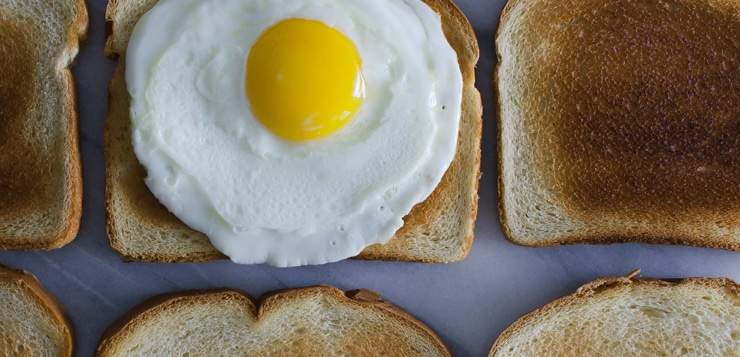It’s been more than fifteen years since I last held down what many people disconcertingly refer to as a “real” job. For over a decade I haven’t shaved before going to bed, taken my shirts to the laundry or put on a sports jacket before noon. I can no longer find the snooze button on my alarm clock while fast asleep. I’m not sure that I still know how to tie a necktie—or, for that matter, where exactly my neckties are.
What I can’t forget, however, is the trauma of the workday morning. I went to bed wrapped in the quiet solitude of my personal life; I woke up to find my bed down the corridor from my office. It was a long corridor, and it took a lot of effort to drag myself down it—splashing my face with water, donning work clothes, and swilling coffee as I went.
I would have given anything to make that hallway much, much shorter. I had to face cheek-nipping cold, subway cars so crammed with riders I had to hammer myself in to escape being crushed by the closing doors, and the predictable but always mortifying late arrival, a good twenty minutes after everyone else. If only I could have woken up in my office chair, scrubbed clean and fully dressed, to find that some considerate soul had left on my desk a jeroboam of steaming coffee and a pizza-sized cheese Danish.
Although most mornings I surely must have eaten breakfast before I left home, I can’t for the life of me remember doing so or what I might have eaten if I did. All I remember is a world of pre-Starbucks coffee-and-pastry takeout joints and doughnut shops with their half-evocative, half-repellent odor of boiled coffee and stale frying grease, filled with jostling patrons fighting for the counterperson’s attention.
I worked in downtown Boston for several years, and by the time I left I knew every breakfast dive in the area and every item on their takeout lists, from almond croissants to Chinese crullers to the sausage rolls sold at a British bakery chain trying to establish a beachhead on this side of the Atlantic. Then I left my job and never entered one of those places again.
What surprises me on reflection is not the abruptness of this change but my total obliviousness to it. There was no sigh of relief heaved nor “good riddance” muttered. One day, there I was with my mouth full of cranberry-walnut muffin, and the day after, it was as if I had never known such things existed. From the moment the working world and I went our separate ways, I haven’t eaten a single jelly doughnut or raspberry turnover or anything else much resembling them.
I shouldn’t be surprised by this. Of all our meals, breakfast is the one in which form most relentlessly follows function. We eat the workday breakfast with one foot out the door—which means that the outside has already planted its foot right in our kitchen. In the television sitcoms of my youth, Dad ate standing up, a cup of coffee in one hand, his briefcase in the other. Now Mom is standing there with him, and the dirty cups sit in the sink until one or the other of them returns home at night.
The backlash hits once we arrive at the office, where a force as strong as gravity draws us toward the box of doughnut holes some well-intentioned soul has left beside the coffee machine. “Take three,” our inner quack prescribes, “one chocolate, one rolled in coconut, one dusted with multicolored sprinkles, wash them down with a hit or two of java, and you might just survive until noon.”
The coffee break, the mid-morning treat, these are nothing more than an all-too-ephemeral antidote to that white-collar malaise compounded of boredom, stress, fluorescent light and recycled air. My interest in such “treats” vanished once I stopped perversely trying to move my bedroom closer to my office and, instead, found a way to shift my office into intimate proximity to my bedroom. Then, rather than waking up to find—as I had once wished—that the painful transition from private to public self had already taken place, I open my eyes knowing it doesn’t have to happen at all.
Even so, I was still a long way from discovering a breakfast of my own. After I left my job, I moved to the coast of Maine, where Matt soon came to join me. For most of our time there, we lived off a dirt road in a house tucked into a pine woods. The deep silence that greeted us every morning all but mandated the house-livening presence of breakfast baking—pancakes, popovers, cranberry clafoutis, blueberry coffeecake. Indeed, such baking became so routine that Matt eventually had her biscuit making perfected to the point where she had them in the oven in five minutes flat and out of it before the coffee had finished dripping through the biggin.
Alas, this didn’t really do it for me, and as it turned out, Matt had also begun to tire of all that morning baking. These days she prefers a simple breakfast—hot buttered toast with honey, or sometimes Grape Nuts and yogurt. But my morning appetite, however lazy, is too restless to settle happily into so regular a gig. Initially, I thought otherwise. At first, my solitary breakfasts reflected a need to compensate for years of suffering from FEDS (fried egg deprivation syndrome—Matt has never been much of an egg lover). But after several months, this everyday routine of fried or scrambled eggs began to pale.
The word “breakfast” seems to me not quite right for our first meal of the day. Whatever you want to call that stretch of time since supper, most of us don’t exactly think of it as a fast. We’re hungry when we wake up in the morning, no doubt about it. But we’re also groggy, vulnerable, feeling as though our brain is encased in nothing more solid than tissue paper. That mouthful we seek, blindly groping our way across the kitchen, bare feet padding on the cold linoleum, needs to be a very special sort of sustenance. For the truly innocent, a bowl of hot pap is all the occasion requires, whether that be porridge and milk, a doughnut dunked in coffee, or a bowl of steaming noodles steeped in beef broth.
And what of the divide between the sweet and savory breakfast lover? Is this a matter of body chemistry or is it another way of handling primal discontent? Does the one keep adding sugar in hopes of returning to a half-remembered, now unattainable state of sweetness and bliss? Does the other keep salting and peppering to give savor to what has otherwise proven drearily bland?
Well, whatever the answer, we hardly want it to intrude on our breakfast. It’s enough to notice that the essence of the perfect morning meal, no matter how we season it, is the soothing feeling of imbibing energy without expending any. The golden rule of morning eating is simply this: breakfast is before work. If there has to be any cooking at all, we want it to be nothing more than an appetite-enhancing form of play.
This is only possible, of course, if someone else has done all the necessary prep. And until the advent of the processed food industry, that person was usually a hen. The egg is the original prepackaged breakfast, a meal that—at least before salmonella worries— could be sucked right from the shell. Otherwise, eggs can be cooked easily and quickly in any number of pleasant ways—poached, fried, scrambled, boiled, coddled, baked and, even if it comes to that, deep-fried.
The problem—at least for savory breakfast lovers like myself—is that after the egg comes—what? It turns out that the world abounds in ideas for one-shot Epicurean breakfasts—the wedge of pate, the smoked duck breast, the tureen of menudo, the brace of marrow bones. Far harder to find is the unremarkable but always welcome sort, the savory equivalent to a bowl of granola or a sticky bun.
Or so I feared, when I first started pushing our grocery cart into some unfamiliar areas of the supermarket, searching for clues, toying with foods that otherwise would never have caught my eye—individual pork pies, frozen beef and bean burritos, Chinese ravioli, finnan haddie. At one point or another, I tried them all. I made lots of mistakes. But gradually the field narrowed, and I began to approximate my ideal morning meal and create a satisfying line-up of options, including pierogi, bagels and cream cheese, a bird’s nest of soft-boiled eggs in toast with matchstick potatoes, and tamales, roasted peppers and cheese. Here’s the recipe for that:
Tamales with Melted Cheese and Roasted Red Peppers (Serves 1)
2 frozen tamales
2 slices of a mild white cheese such as Monterey Jack
1 whole roasted red pepper
Heat the tamales as directed on the package. Meanwhile, slice the cheese. Split the roasted pepper into two halves and—if fresh from the fridge—warm them up a bit. (I put them on a saucer and slide this into our toaster over, turned down to its lowest setting.) Slip the tamales from their packages directly onto a plate. Set a slice of cheese on each and top with a pepper half. Eat at once.







